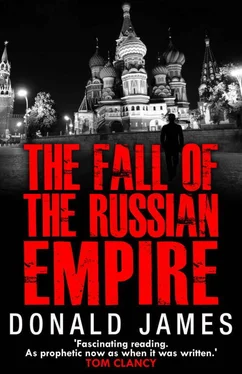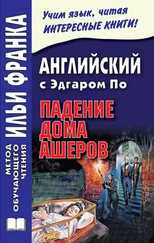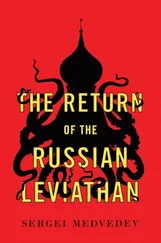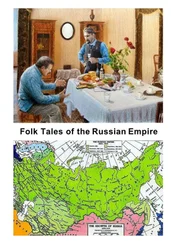It was an old struggle. When the October Revolution threw the Czarist Empire into confusion, breaking the bonds which held the colonized nationalities to the center, national armies had begun to appear to defend the newly independent status of their peoples. Lenin immediately decreed the integration of the national armies into the Red Army wherever it was militarily possible to do so — whether the nationalists liked it or not.
But as the revolution exploded into Civil War, the Bolsheviks were forced to cut their coats according to their cloth. Large national armies in the Ukraine, Georgia, Armenia and the Asiatic nations could not be forced into the Red Army. Attempts to do so led to new national uprisings in Central Asia in the 1920s, suppressed only after years of bloody fighting. Yet slowly, at immense cost, the Russian Empire was reformed in these years before World War II as one after another the national armies were browbeaten into submission.
In 1941, war was once again the modifier of theory. As the German armies advanced there was no time to force conscript soldiers to become Russians. Instead divisions and army corps of Kazaks and Azerbaijanians were raised, whole units speaking their own national language, officered by their own nationals and necessarily developing an esprit de corps rooted in their own cultures.
Again, with peace, the inevitable began to happen. The bonds lashing the nationalities to the elder brother, Russia, began to snap. Two years of bloody civil war (1945-47) in the Ukraine were hardly noticed in the West. A small nation, the Crimean Tatars, were simply deported into Siberia as revenge for their uncertain loyalty to the Soviet Union. Once again, painfully and bloodily, the Russian Army became the sole army of the Soviet Union. Some claim that it was only in 1967 with the new military service law that the Red Army was fully reconstituted.
So as the severe stresses of the 1980s began to develop within the Soviet Union, what appeared to the West as a loyally monolithic force was in fact a unity less than twenty years old; a unity devoted to forcing the Russian language, culture and customs on peoples who demanded their own national expression. It was also a unity which had yet to have its cohesion and common purpose tested by fire.
The secret was kept astonishingly well, but by the early 1980s all but the first rank of Soviet Army divisions were riddled with racial tensions.
In the light of later events the consequences for the Soviet Union cannot be exaggerated. In their thousands soldiers were sent to penal brigades for using their national language in the barrack block. But in the company of fifty brother Uzbeks a man was not going to speak haltingly in Russian.
A whole penal system had evolved to enforce the Russification program. Separate from the corrective labor camps, military prisoners were organized into penal brigades. Their camps were situated in the same harsh areas of the country as the civilian camps, frequently indeed standing side by side.
There was brutality enough, of course, in the civilian labor camps, but in the camps that housed the penal brigades an even harsher tradition evolved. Because the members of the penal brigades were overwhelmingly from the Central Soviet Asian republics, their Slav guards came to treat the penals as subhumans, Untermenschen . Throughout the seventies and into the eighties ugly stories of Slav brutality filtered back to the southern republics. In the Soviet Union, it began to be said, the penal brigade was the price a young man paid to remain true to his own national language and culture.
These were the deep fissures in the Soviet Union. But the system itself contributed massively to increasing unrest, as much in the Baltic and Slav republics as in the Asiatic republics of the south and southeast.
In these years foreign reporters began to comment on the lack of vitality in Soviet life. And on the marked growth of alcoholism. Every township by 1980 had its own drunk-tank.
Poles rioted and struggled for liberal institutions. Georgians, Tajiks and Latvians demanded more autonomy. Burdened with a huge military budget, Brezhnev and his Politburo colleagues struggled to distribute oil and foreign currency reserves to satellite nations demanding more connections with, and more loans from, the West.
As the first half decade of the 1980s wore on, the slumbrous apathy of the Soviet peoples was seen, by some observers, to be changing. In the dark wooden lanes of Moscow’s Red Presnya district it was no longer unusual to see militiamen assaulted. Graffiti, previously rare, now adorned the walls of apartment blocks, bus stations and government offices. From a call for improved food supplies in the city the scrawled messages began to carry political or nationalistic themes.
In a very literal sense, as 1985 drew near, for the men within the great Kremlin gates the writing was on the wall.
* * *
Yet for some the lights still shone brightly. Igor Bukansky, editor of the Soviet cultural magazine Novaya Literatura , was particularly well placed to enjoy the benefits of life in Moscow in the 1980s.
Outside the government itself Bukansky was one of the best-known figures in the capital. His vast bulk, well over six foot tall and barrel-chested, contributed, with his reputation for high living, to his notoriety. His magazine was unique in its coverage of fashion, theater, literature and painting. It was clear to most people in the Arts that Novaya Literatura , or Igor Bukansky himself, enjoyed a special dispensation from the government. The sheer glossiness of the magazine made it sought after as was no other publication in Moscow. Its Soviet fashion pages came intriguingly close to the softest of soft porn; its reproductions of modern painting strayed a long way from the officially approved Soviet realism; and its poetry and serialization of novels could be thought to reflect the uncertain liberation of the age of Khrushchev rather than the hardening present.
In his youth a poet of some talent himself, Igor Bukansky knew exactly the compromises he had made. At this time he began to record a series of memoirs on tape:
For some of us it was the life of the old pre-Revolution aristos [Bukansky recorded]. People might have said that we’d forgotten nothing and learned nothing. I can understand it when they looked at the life of a senior Party member and committeeman of the Writers’ Union like myself.
Take living conditions. Apartments in Moscow are strictly allocated by square feet. Most families have a small place to themselves, one or two rooms, no more. And the new tower blocks are as grim and uninviting as the old slums, but without the friendliness. Yet where do we live, we the vlasti , the powers that be?
First, of course, we all have apartments in the city, often in the older buildings where the rooms are spacious and light. In addition there is the dacha, the country house, a long-established tradition for the rich and powerful that goes back deep into Czarist times.
So we have the little village of Zhukova, 20 miles from Moscow, nothing much to look at if you’re passing through. A few comfortable clapboard village houses, that’s all. But in the woods behind, my friends, and on the bosky bluffs overlooking the river, are some of the finest dachas in the country. Khrushchev lived here in a fine mansion with marble steps down to his private jetty. Brezhnev and Molotov had places here, grand beyond imagining for most Soviet citizens. Scientists, academics, writers — they all live here. Yes, this little village in the Moscow oblast doesn’t look like much from the road… there are other villages too, such as Peredelkino where I have a dacha.
To Russians, this is the way of the world. Of course a lot of people thought it would all change with the Revolution; good, honest people. But it didn’t. For myself, I like the story about Leonid Brezhnev. Muscovites love a story, especially one aimed at the vlasti . It appears Brezhnev’s old mother came up from the Ukraine on her first visit to Moscow just before she died. Her son, not unnaturally perhaps, set out to show her how well he was doing. He took her to his apartment on Kutuzov Prospekt. Standing in the wide entry foyer the old lady looked baffled. “But where are the beds, Leonid? Where do you sleep?”
Читать дальше












